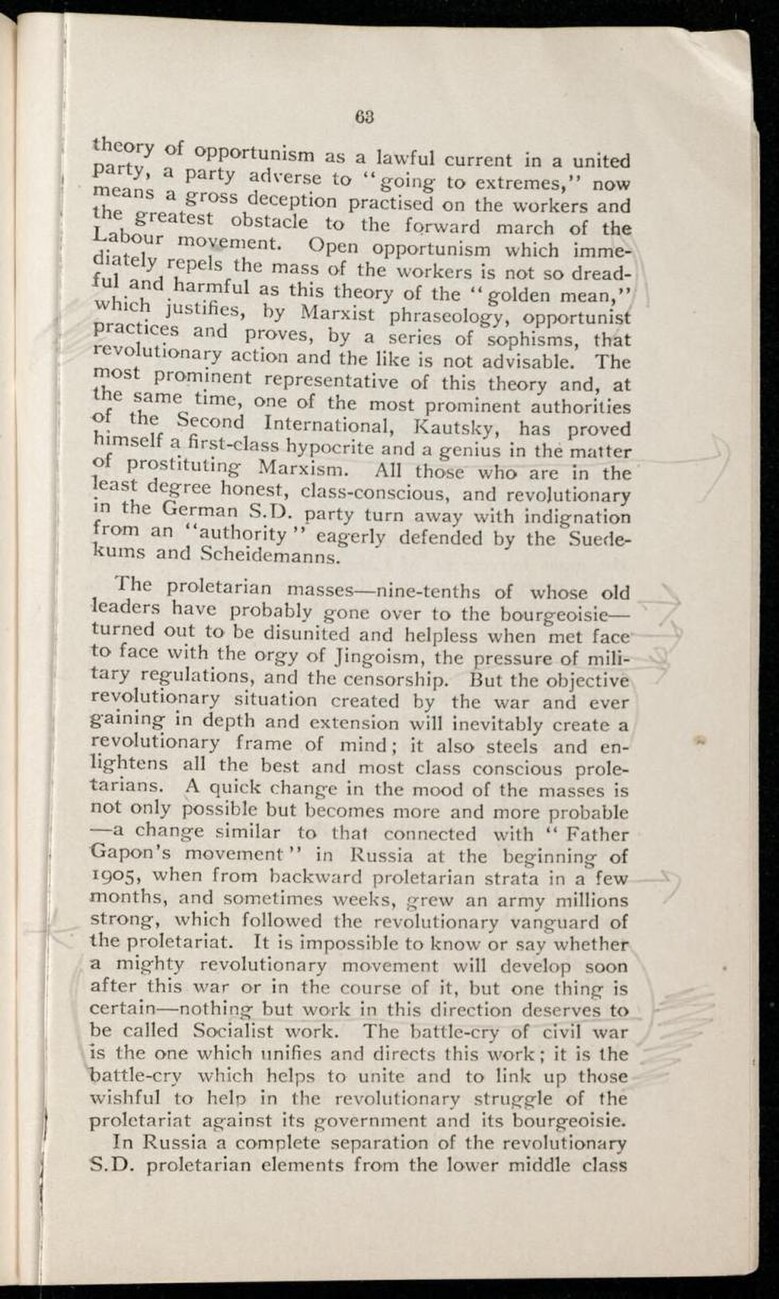63
theory of opportunism as a lawful current in a united party, a party adverse to "going to extremes," now means a gross deception practised on the workers and the greatest obstacle to the forward march of the Labour movement. Open opportunism which immediately repels the mass of the workers is not so dreadful and harmful as this theory of the "golden mean," which justifies, by Marxist phraseology, opportunist practices and proves, by a series of sophisms, that revolutionary action and the like is not advisable. The most prominent representative of this theory and, at the same time, one of the most prominent authorities of the Second International, Kautsky, has proved himself a first-class hypocrite and a genius in the matter of prostituting Marxism. All those who are in the least degree honest, class-conscious, and revolutionary in the German S.D. party turn away with indignation from an "authority" eagerly defended by the Suedekums and Scheidemanns.
The proletarian masses—nine-tenths of whose old leaders have probably gone over to the bourgeoisie—turned out to be disunited and helpless when met face to face with the orgy of Jingoism, the pressure of military regulations, and the censorship. But the objective revolutionary situation created by the war and ever gaining in depth and extension will inevitably create a revolutionary frame of mind; it also steels and enlightens all the best and most class conscious proletarians. A quick change in the mood of the masses is not only possible but becomes more and more probable—a change similar to that connected with "Father Gapon's movement" in Russia at the beginning of 1905, when from backward proletarian strata in a few months, and sometimes weeks, grew an army millions strong, which followed the revolutionary vanguard of the proletariat. It is impossible to know or say whether a mighty revolutionary movement will develop soon after this war or in the course of it, but one thing is certain—nothing but work in this direction deserves to be called Socialist work. The battle-cry of civil war is the one which unifies and directs this work; it is the battle-cry which helps to unite and to link up those wishful to help in the revolutionary struggle of the proletariat against its government and its bourgeoisie.
In Russia a complete separation of the revolutionary S.D. proletarian elements from the lower middle class
